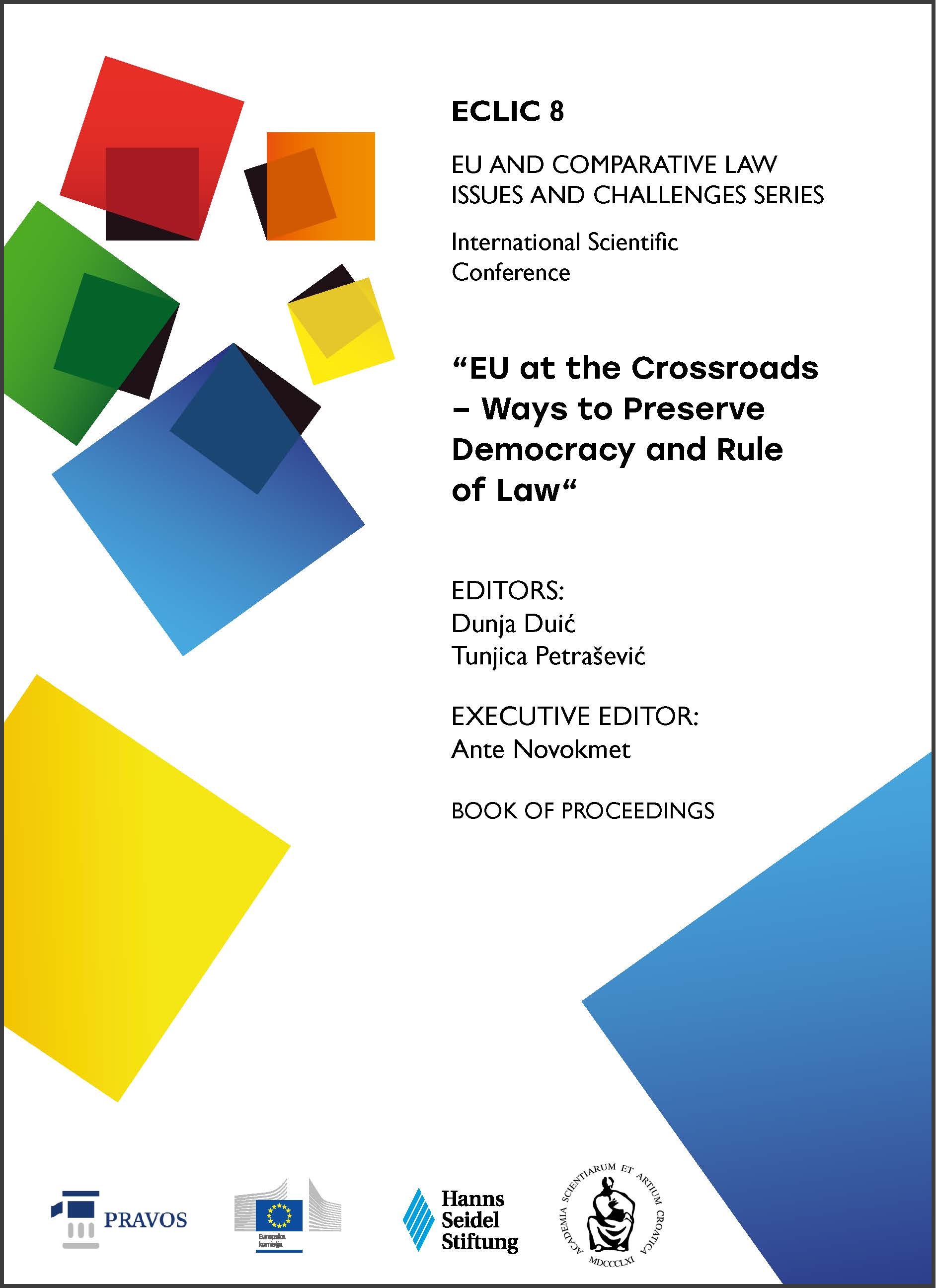THE PRINCIPLE OF SOLIDARITY AND THE CHALLENGES OF SYSTEM AND SOCIAL (DIS)INTEGRATION
IN ANTICIPATION OF THE NEW EU RULES ON MIGRATION AND ASYLUM
DOI:
https://doi.org/10.25234/eclic/32294Abstract
In the wake of the political agreement reached in December 2023 by the European Parliament and the Council on the New Pact on Migration and Asylum, it is necessary to reconsider the concept of solidarity as its breaking point. Although it is crucial for a fair sharing of burden and responsibility among Member States in the face of persistent migratory pressure, a workable solidarity mechanism seems elusive and difficult to achieve. The Pact’s intended paradigm-changing approach towards a more flexible solidarity has initially been criticised by Member States, human rights organisations, and academia alike.
This paper aims to examine the conceptual issues surrounding the proposed solidarity mechanism from an interdisciplinary perspective, relying on the analytical distinction of the concepts of system and social integration in the understanding and explication of the processes of constitution, transformation and (dis)integration of the social order. The aforementioned distinction is conceptually useful for analysing the process of functioning and (dis)integration of the social order because it allows scholars to simultaneously analyse how different institutional solutions affect the functioning and compatibility of the social (sub)systems of that order, and how they affect the character of the relationships between social actors with different interests and identities operating within that order.
Building on the existing extensive legal scholarship on solidarity in the EU migration and asylum policy, the paper will analyse the role of solidarity in the context of processes related to constitution, transformation and (dis)integration of EU. As an underlying value and a principle, solidarity permeates numerous areas of EU law and represents the “ideological” basis legitimising the European integration. However, it is often misunderstood or implemented in the manner which accommodates current political and social circumstances. Thus, it becomes a political tool, at the expense of its legal coherence. This has a far-reaching impact on the functionality and efficiency of the legal system, and potentially disintegrating effects both on the relations between the EU and the Member States institutional systems, and on the cooperativeness between political and social actors regarding the creation and adoption of future EU policies and laws. Lessons from other fields of law, notably from institutionalisation of solidarity within the social security law, will be explored to evaluate the position of solidarity in the context of the EU migration and asylum policy. The aim is to establish whether the patterns of flexible solidarity can represent a viable option which is in line with the legal conceptualisation of solidarity, and to investigate how strong is their (dis)integrative potential. This innovative approach will offer a wider and fresh perspective to the on-going debate surrounding the institutionalisation of the principle of solidarity in the EU migration and asylum law.
Downloads
Published
How to Cite
Issue
Section
License
Copyright (c) 2024 Adrijana Martinović, Marko Mrakovčić, Nikola Petrović

This work is licensed under a Creative Commons Attribution-NonCommercial 4.0 International License.
Authors retain the copyright on the papers published in the Journal, but grant the right of first publication to the Journal. Papers accepted for publication or already published in ECLIC of the Faculty of Law in Osijek may be published by the author(s) in other publications only with proper notice of its previous publication in ECLIC.


